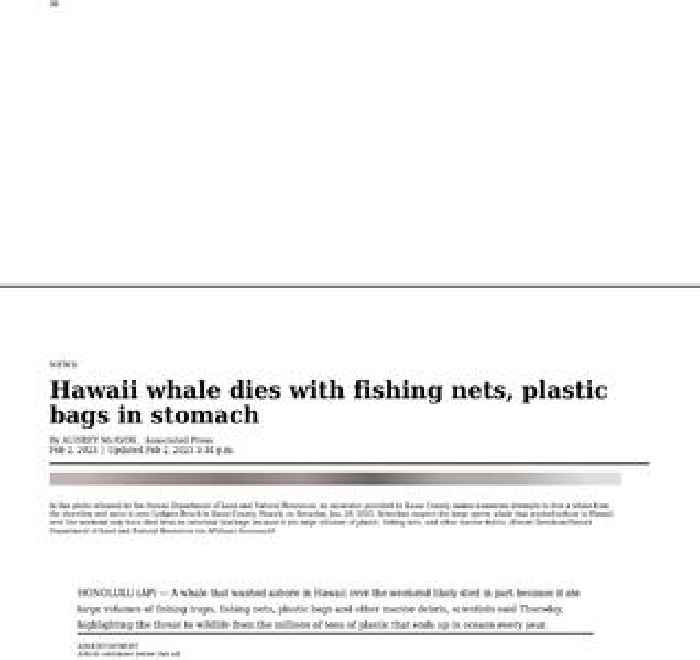
Hawaii whale dies with fishing nets, plastic bags in stomach

HONOLULU (AP) — A whale that washed ashore in Hawaii over the weekend likely died in part because it ate large volumes of fishing traps, fishing nets, plastic bags and other marine debris, scientists said Thursday, highlighting the threat to wildlife from the millions of tons of plastic that ends up in oceans every year.
The body of the 56-foot (17-meter) long, 120,000-pound (54,431-kilogram) animal was first noticed on a reef off Kauai on Friday. High tide brought it ashore on Saturday.
Kristi West, the director of the University of Hawaii's Health and Stranding Lab, said there were enough foreign objects in the opening of the whale's intestinal tract to block food.
“The presence of undigested fish and squid lends further evidence of a blockage,” she said in a news release from the Hawaii Department of Land and Natural Resources.
The whale's stomach contained six hagfish traps, seven types of fishing net, two types of plastic bags, a light protector, fishing line and a float from a net. Researchers also found squid beaks, fish skeleton and remains of other prey in the whale's stomach.
It’s the first known case of a sperm whale in Hawaii waters ingesting discarded fishing gear, West said.
The whale's stomach was so large West's team wasn't able to examine it completely. They suspect there was more material they weren't able to recover.
Researchers found nothing wrong with other organs they examined. They collected samples to screen for disease and conduct other follow-up tests.
Sperm whales travel across thousands of miles in the ocean so it’s not clear where the debris came from.
Scientists say that more than 35 million tons (31.9 million metric tons) of plastic pollution is produced around Earth each year and about a quarter of that ends up around the water.
Marine...
